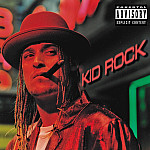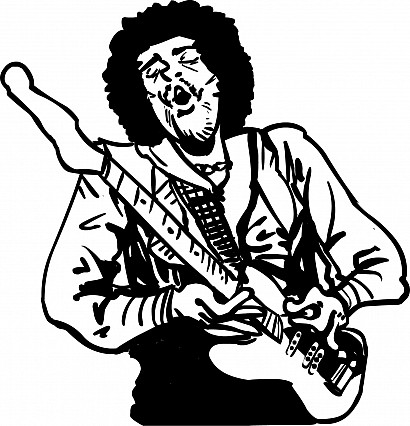18
Featured Events
 1998After getting dropped by Jive and releasing two independent albums, Kid Rock issues Devil Without A Cause, his first album with Lava Records. It sells 11 million copies, making the rumpled rap-rocker a huge star.More
1998After getting dropped by Jive and releasing two independent albums, Kid Rock issues Devil Without A Cause, his first album with Lava Records. It sells 11 million copies, making the rumpled rap-rocker a huge star.More
1992Frances Bean Cobain is born to Courtney Love and Nirvana's Kurt Cobain.
1984After years toiling in clubs, Red Hot Chili Peppers release their self-titled debut album.
1979Nick Lowe marries Johnny Cash's stepdaughter, country singer Carlene Carter, in Los Angeles. The wedding is reenacted in Lowe's video for "Cruel To Be Kind." The pair get divorced in 1990.
1979Chic's "Good Times" hits #1 in America as disco still has some dance. It holds the top spot for one week.
1955Pete Seeger testifies before the House Un-American Activities Committee, where he is asked if he has performed for communists. Seger replies: "I have sung for Americans of every political persuasion, and I am proud that I never refuse to sing to an audience, no matter what religion or color of their skin, or situation in life. I have sung in hobo jungles, and I have sung for the Rockefellers, and I am proud that I have never refused to sing for anybody."
18
In Music History
2017Taylor Swift wipes clean her social media accounts (Facebook, Twitter, Instagram, personal YouTube). Three days later, she begins posting video of a snake to tease her scathing song "Look What You Made Me Do," which is released on August 25.
2012Pop singer-songwriter Scott McKenzie dies at age 73 in Los Angeles, California, after a two-year struggle with Guillain-Barre syndrome.
2011During a severe storm, high wind and heavy rain cause a stage to collapse while Chicago band Smith Westerns are performing. Four are killed and over 70 injured. Organizers decide to cancel the festival, where Eminem, Face to Face and Foo Fighters were scheduled to perform.
2004Film score composer/conductor Elmer Bernstein dies of cancer in Ojai, California, at age 82.
2003Singer/bass player Tony Jackson (of The Searchers) dies from a combination of health issues - including diabetes, heart disease and cirrhosis of the liver - in Nottingham, England, at age 65.
1991Billy Preston is arrested on charges of battery after allegedly attacking a 16-year-old prostitute once Preston discovered he was a transvestite. The keyboardist and singer is eventually given five years probation.
1982The Beatles' hometown of Liverpool, England, renames some streets in honor of the band members. There is John Lennon Drive, Paul McCartney Way, George Harrison Close, Ringo Starr Drive, and even Sutcliffe Street (in honor of original bass player Stu Sutcliffe).
1978The Temptations' Melvin "Blue" Franklin is shot four times in the hand and leg during an attempted carjacking in Los Angeles, but survives.
1977Elvis Presley's funeral is held at Graceland, where 150 guests are invited inside and about 75,000 fans pay their respects outside.
1973Jazz drumming legend Gene Krupa plays what is to be his last live show, a gig with the Benny Goodman Quartet in New York City.
1973Diana Ross' "Touch Me In The Morning" hits #1, where it stays for one week.
1973Conway Twitty and Loretta Lynn's "Louisiana Woman, Mississippi Man" hits #1 on the country chart.
1971Electronic musician Richard David James (best known as Aphex Twin) is born in Limerick, Ireland.
1969Local upstart band Rush see Led Zeppelin perform in Toronto. In 1974, when Rush get airplay in America with the song "Working Man," radio stations field lots of calls asking if it's a new Led Zeppelin song.
Hendrix Wakes Up Woodstock With "Star-Spangled Banner"
 1969
1969
Jimi Hendrix closes out Woodstock with an early morning performance of "Hey Joe." The festival headliner, he was supposed to play the previous night, but when it runs long, he ends up taking the stage on a Monday morning. His set includes a scorching rendition of "The Star Spangled Banner."
While shutting down Woodstock, Hendrix becomes a human tuning fork for the '60s zeitgeist, dousing the US national anthem in tie-dyed mix of rage and exuberance. Some say the guitarist is possessed by the spirit of God as he plays. Others say it's the Devil. Nobody questions that he's possessed by something.
On the fourth and last day of Woodstock, the festival grounds look more like a refugee camp than a musical festival. Considering the revolutionary stance held by most on the scene, "refugee camp" is probably an apt comparison that the participants themselves would embrace.
The festival's peak attendance of around 400,000 has dwindled to less than 200,000. Those who remain are exhausted and filthy. Hendrix takes the stage wearing a white, fringed coat reminiscent of Native American garb, coupled with blue jeans. He is calling his backing band Gypsy Sun & Rainbows, rather than the formerly held Jimi Hendrix Experience. In this new lineup, Billy Cox replaces Noel Redding on bass and Larry Lee is added as a second guitarist. The group has only had time to do two rehearsals. None of that seems to matter, however, as Hendrix teases a few notes from "Voodoo Child (Slight Return)" before ripping into a furious, psychedelic interpretation of "The Star Spangled Banner."
Hendrix is like a fire lizard, many times seeming on the verge of spinning out of control into madness or ecstasy before masterfully grabbing hold and bringing it back under wraps. The performance acts as a Rorschach text for all who see it. Many, such as Heart's Ann Wilson, hear explosions and gunshots in the song and view it as a statement against the Vietnam War. Others hear a threat to all that traditional America holds dear. As for the artist himself, he tells Dick Cavett that the performance wasn't blasphemous or combative. To him, it was simply "beautiful."
Hendrix's "Star Spangled Banner" sears itself into the psyche of the '60s generation. Somehow, in its distorted way, the performance gives sound to all the semi-rational hopes and fears of the era. For many, it is the defining moment of a defining cultural event.

No comments:
Post a Comment